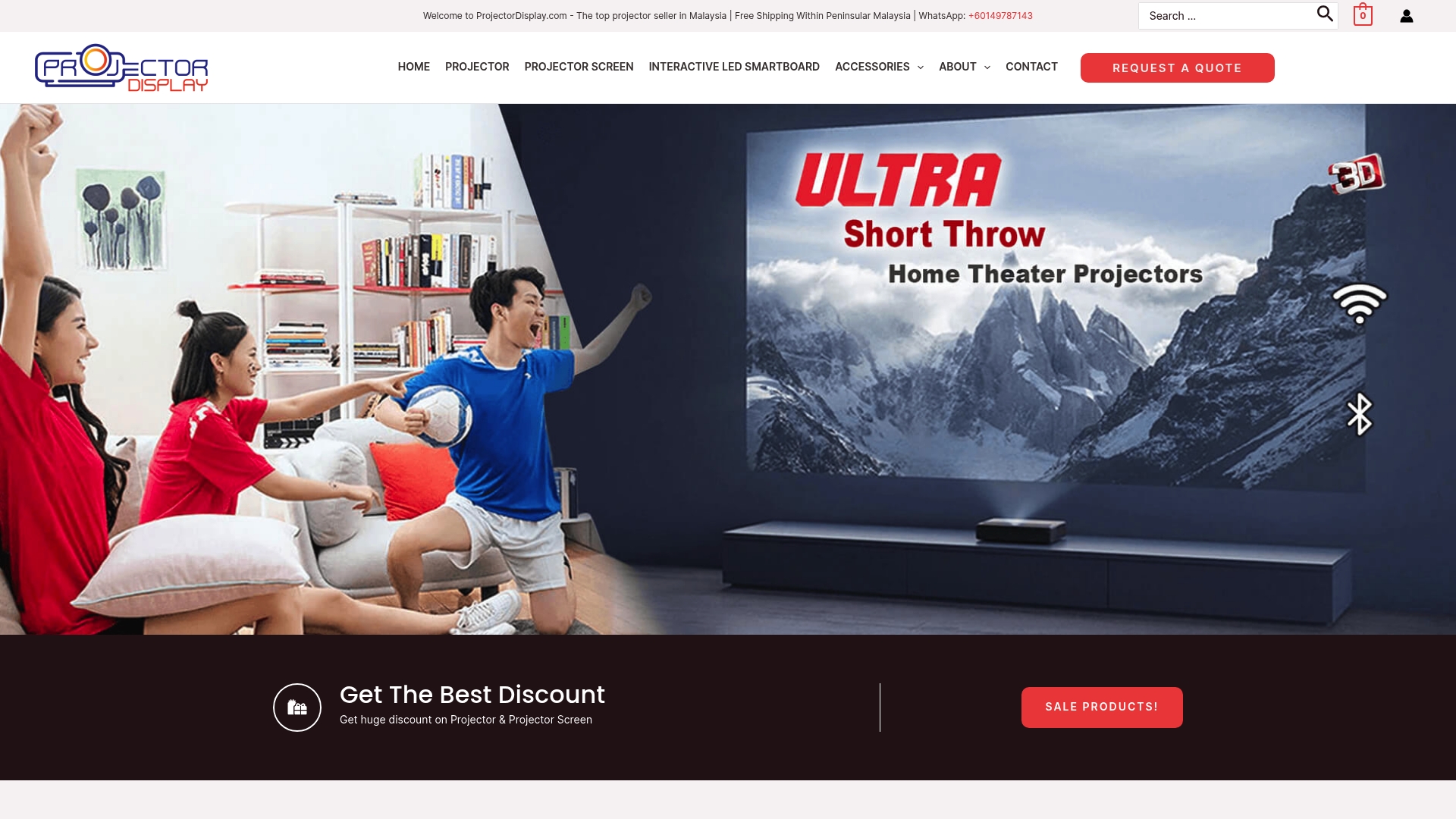A staggering 95 percent of small businesses now rely on technology platforms, reshaping how they operate and grow. This surge in digital adoption signals a major shift, making tech a foundation for survival and progress. From smart projectors that spark collaboration to AI tools that save hours each month, the right mix of technology levels the playing field and helps small companies compete with bigger players.
Key Takeaways
| Point | Details |
|---|---|
| Importance of Technology | 95% of small businesses utilize technology platforms, making digital transformation crucial for competitiveness and growth. |
| Strategic Integration | Successful technology deployment requires a strategic approach focused on leadership, collaboration, and user-friendly tools. |
| Investment in Cybersecurity | Proactive cybersecurity measures are essential; investing in security is a strategic necessity, not an expense. |
| Focus on Cost-Effectiveness | Businesses must evaluate the total cost of ownership and opt for scalable, cloud-based solutions to ensure long-term viability. |
Table of Contents
- Defining Tech For Small Businesses
- Essential Hardware And Software Tools
- Projection Solutions For Business Environments
- Implementing And Integrating Technology Effectively
- Costs, Support, And Security Considerations
Defining Tech for Small Businesses
In today's competitive business landscape, technology platforms have become more than just optional tools – they're essential lifelines for small businesses seeking growth and sustainability. According to the U.S. Chamber of Commerce's 2023 report, an impressive 95% of small businesses now leverage at least one technology platform, signaling a profound digital transformation across entrepreneurial ecosystems.
The strategic adoption of technology isn't just about keeping up – it's about gaining competitive advantages. Key technological investments for small businesses typically include:
- Cloud Computing: Enabling flexible, scalable infrastructure
- Artificial Intelligence: Automating routine tasks and gaining strategic insights
- Cybersecurity Solutions: Protecting critical business data
- Customer Relationship Management (CRM) Systems: Streamlining client interactions
Moreover, emerging research reveals substantial benefits of technological integration. A 2025 academic study highlighted that AI adoption among small and medium enterprises can deliver remarkable outcomes:
- 91% reported direct revenue increases
- Potential operational cost reductions up to 30%
- Time savings exceeding 20 hours per month
These statistics underscore technology's transformative potential – not as a luxury, but as a strategic imperative for modern small businesses navigating increasingly complex market dynamics.

Essential Hardware and Software Tools
For small businesses in 2025, selecting the right hardware and software tools can mean the difference between merely surviving and truly thriving. According to a forward-looking 2026 article from Digital License, several critical tools have emerged as game-changers for entrepreneurial success.
Productivity and Communication Platforms
Key software solutions that are transforming small business operations include:
- Microsoft 365 with Copilot: Revolutionizing productivity through AI-assisted workflows
- Slack and Microsoft Teams: Enabling seamless team communication and collaboration
- Adobe Creative Cloud: Empowering businesses with professional visual content creation
Financial and Management Tools
Financial management and project tracking have become significantly more sophisticated:
- QuickBooks Online: Streamlining financial tracking and reporting
- Asana: Providing AI-enhanced project management capabilities
- HubSpot and Salesforce CRMs: Delivering intelligent customer relationship management with advanced analytics
A 2025 overview by Forbes Burton emphasizes that modern business tools are not just about functionality, but about providing familiar interfaces with cutting-edge AI features that dramatically enhance efficiency. These platforms are designed to integrate smoothly, reducing learning curves and accelerating business productivity.

Here's a comparison of essential hardware and software tools for small businesses:
| Tool/Platform | Primary Purpose | Key Benefit |
|---|---|---|
| Microsoft 365 with Copilot | Productivity & Collaboration | AI-assisted workflows |
| Slack Microsoft Teams |
Team Communication | Seamless collaboration |
| Adobe Creative Cloud | Content Creation | Professional design tools |
| QuickBooks Online | Financial Management | Streamlined tracking |
| Asana | Project Management | AI-powered planning |
| HubSpot Salesforce CRMs |
Customer Relationship | Advanced analytics |
Projection Solutions for Business Environments
In the evolving landscape of business communication, projection technologies have transformed from simple presentation tools to sophisticated collaboration platforms. Modern projection solutions are no longer just about displaying images – they're about creating immersive, interactive experiences that drive engagement and productivity.
Key Projection Technologies
Business environments now demand versatile projection solutions that offer:
- High Lumens Output: Ensuring clear visibility in various lighting conditions
- Wireless Connectivity: Enabling seamless device integration
- Smart Interactive Features: Supporting real-time collaboration
- Ultra-Short Throw Capabilities: Maximizing limited meeting space
Performance and Integration
Today's projection systems go beyond traditional display mechanisms. Discover our top business projector recommendations that support multi-service business gateways – integrated platforms combining routing, security, VPN, and communication technologies.
Moreover, these advanced projection solutions align perfectly with mobile business intelligence systems, which deliver real-time performance data directly to smartphones and tablets. This convergence of projection technology and mobile intelligence enables businesses to transform meeting rooms into dynamic, data-driven environments where insights can be shared instantaneously and collaboratively.
The future of business projection is not just about seeing – it's about connecting, analyzing, and making informed decisions in real-time. By investing in smart projection technologies, businesses can create more engaging, efficient, and intelligent workplace communication ecosystems.
Implementing and Integrating Technology Effectively
Successful technology integration isn't just about purchasing tools – it's about creating a strategic approach that transforms how small businesses operate. According to a 2025 study on DevSecOps adoption, small and medium enterprises face significant challenges in technological implementation, with key obstacles including technical complexity, resource constraints, and organizational cultural resistance.
Strategic Implementation Approach
To navigate these challenges effectively, businesses should focus on several critical strategies:
- Leadership Commitment: Ensuring top-down support for technological transformation
- Cross-Team Collaboration: Breaking down departmental silos
- Incremental Adoption: Implementing technologies in manageable phases
- Continuous Learning: Investing in team skill development
Accessibility and User-Friendly Solutions
Emerging tools like the BizChat system are revolutionizing technology integration for businesses with varying digital skills. This generative AI-powered platform demonstrates a "low-floor-high-ceiling" design approach, which means:
- Accessible entry points for less tech-savvy users
- Advanced capabilities for more experienced teams
- Contextual learning and micro-training modules
- Intuitive interfaces that reduce learning barriers
A 2025 research highlighted that successful technology integration requires more than just technical implementation. It demands a holistic approach that considers human factors, organizational culture, and the specific needs of each business. By focusing on user-friendly solutions, continuous learning, and strategic implementation, small businesses can transform technological challenges into competitive advantages.
Costs, Support, and Security Considerations
For small businesses in 2025, technology investments are a delicate balance between affordability, functionality, and robust security. The financial landscape of tech adoption requires strategic planning that goes beyond simple price comparisons, focusing on long-term value and comprehensive protection.
Financial Considerations
Technology investment strategies for small businesses should encompass:
- Total Cost of Ownership: Evaluating both upfront and ongoing expenses
- Scalability: Choosing solutions that grow with your business
- Cloud-Based Options: Reducing hardware infrastructure costs
- Subscription Models: Providing flexibility and predictable budgeting
Cybersecurity Preparedness
In an era of increasing digital threats, security cannot be an afterthought. A fascinating mid-2025 initiative by the UK government demonstrates the critical importance of proactive cybersecurity support. By allocating £1.3 million to assist 500 small companies with security reviews, they enabled businesses to receive up to £2,500 in expert cybersecurity assessments.
The results were remarkable: 98% of pilot participants reported feeling significantly more prepared to handle potential digital threats. This underscores a crucial lesson for small businesses – investing in cybersecurity is not an expense, but a critical strategic investment.
Ultimately, successful technology integration requires a holistic approach. Businesses must balance cost-effectiveness with robust security measures, continuous learning, and adaptive support structures. Learn more about protecting your business technology through smart, strategic investments that safeguard both your digital assets and your bottom line.
Elevate Your Business Presentations With the Right Technology
Are you striving to keep pace with the rapid digital transformation highlighted in the "Tech for Small Businesses: Complete Guide for 2025"? Many leaders like you face obstacles such as outdated tools, ineffective collaboration, and concerns over security or integration when deploying new technology. The article makes it clear: advanced projection solutions are no longer a luxury but a necessity for modern business growth. By choosing projection technology that is purpose-built for productivity, wireless connectivity, and sharp performance, you can unlock new levels of engagement and efficiency in every meeting or client pitch.

Turn your boardroom into a true innovation hub today. Explore the best business projector recommendations for clear, dynamic presentations by visiting our top projector picks for business. Discover how our projectors with high lumens, interactive features, and swift mobile integration can solve your core challenges now. With fast shipping and expert advice, ProjectorDisplay.com is your trusted partner for all visual display solutions in Malaysia. Ready to secure your advantage and make the smart investment your business deserves? Protect your technology investment or connect with us today to find the perfect solution.
Frequently Asked Questions
What are the key technology platforms small businesses should consider in 2025?
Small businesses in 2025 should consider adopting key technology platforms like cloud computing for scalability, artificial intelligence for automation, cybersecurity solutions to protect data, and customer relationship management (CRM) systems to streamline client interactions.
How can small businesses effectively integrate new technology?
To effectively integrate new technology, small businesses should focus on leadership commitment, cross-team collaboration, incremental adoption of tools, and continuous learning to ensure all team members are adequately trained and prepared for the transition.
What financial considerations should small businesses keep in mind when investing in technology?
Small businesses should evaluate the total cost of ownership, prioritize scalability, consider cloud-based options for reducing hardware costs, and explore subscription models for flexible budgeting when investing in technology.
Why is cybersecurity important for small businesses in 2025?
Cybersecurity is crucial for small businesses in 2025 due to the increasing digital threats. Investing in robust cybersecurity measures is a strategic necessity to safeguard critical business data and ensure preparedness against potential digital attacks.
Recommended
- Wireless Screen Mirroring in Malaysia: 2025 Guide for Entertainment, Education, and Business – Projector Display
- 6 Best Projectors for Business in Malaysia: Top Picks – Projector Display
- 10 Best Home Gadgets 2025 for Modern Living – Projector Display
- Types of Projectors: Guide for Malaysia Users 2025 – Projector Display

